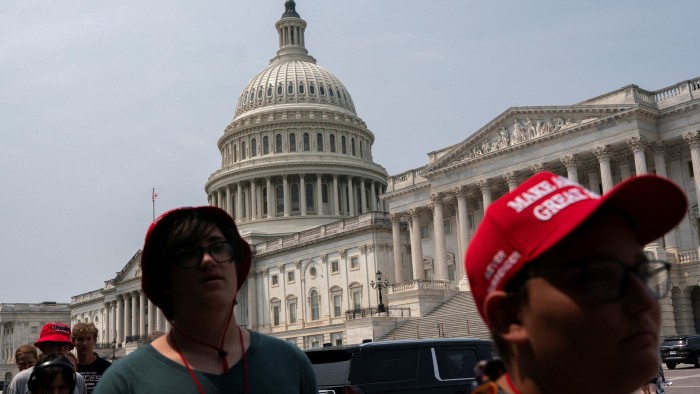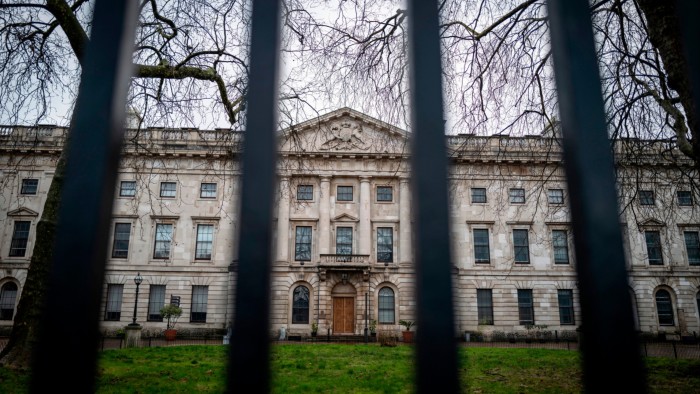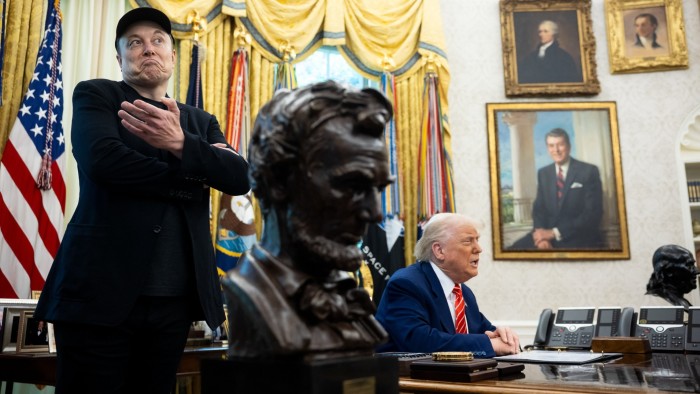Europe’s Mistral benefits from search for AI alternatives

Unlock the Editor’s Digest for free
Roula Khalaf, Editor of the FT, selects her favourite stories in this weekly newsletter.
Europe’s best-known artificial intelligence start-up Mistral AI has secured new contracts worth hundreds of millions of dollars, driving an upturn in its business that could help fuel a potential $1bn fundraising this year.
Paris-based Mistral faces intense competition from US and Chinese competitors but is starting to benefit from a European push to establish regional champions.
According to people familiar with its finances, its revenues have increased several times over since its last funding round a year ago and are on track to surpass $100mn a year for the first time, if it maintains sales momentum.
A relatively small number of large customers are driving much of that growth. Mistral had closed or was near to sealing a handful of commercial contracts, each worth at least $100mn over three to five years, the people said.
Corporate, public-sector and defence customers outside the US are increasingly looking for alternatives to US tech companies since Donald Trump returned to the White House.
“There’s a lot of European companies that want to reduce their dependency on US providers . . . There’s a growing demand for more strategic autonomy,” Arthur Mensch, Mistral’s chief executive, said last month.
This has spurred Mistral, which was valued at nearly €6bn in its last funding round a year ago, to embark on an ambitious programme to expand its own AI infrastructure, starting with a big data centre outside Paris, as well as collaborations with Abu Dhabi-based tech and investment groups G42 and MGX.
To fund that effort, the company — which has already raised more than $1bn since it was founded two years ago — was considering raising up to $1bn more, according to people familiar with the matter. It had begun to sound out potential investors, though a more formal fundraising process was not likely to begin until later this year, the people added.
Mistral declined to comment on its financial performance or funding plans.
The Nvidia-backed company, which was co-founded by three former Meta and Google DeepMind researchers, is far behind US rivals such as OpenAI and Anthropic in both fundraising and commercialisation.
Mistral’s “open” AI models, which customers can examine and customise for their own applications, also face competition from China’s DeepSeek and Meta’s Llama.
But tension between the Trump administration and Europe — as well as a desire by countries around the world to own and operate their own AI infrastructure — could be a boon for Mistral, which generated only tens of millions of dollars in revenue last year, according to people close to the company.
The latest contracts are modelled on Mistral’s €100mn deal with French shipping and logistics group CMA CGM. When that deal was announced in April, CMA CGM boss Rodolphe Saadé said the companies would work together on “bespoke” AI systems.
Mistral, which has about 250 employees, has significantly expanded its commercial team in recent months. It has adopted a sales model similar to that of US data analytics provider Palantir, employing a team of “solutions architects” who work like consultants with each customer on how best to deploy AI in their business.
That can mean a longer sales process than a typical enterprise software contract but with a bigger potential prize.
BNP Paribas, AXA, Stellantis and Veolia are among Mistral’s current customers. It also has a partnership with European defence tech start-up Helsing.
“Sovereignty is not our core business, and we’re a global company,” Mensch said in May. “But the last 100 days have tripled our business, in particular in Europe and outside of the US.”






